Our tool for managing your permission to our use of cookies is temporarily offline. Therefore some functionality is missing.

ENVIRONMENT.
COMPREHENSIVE SUSTAINABILITY ALONG THE ENTIRE VALUE-ADDED CHAIN.
Under the aspect of environment, the BMW Group is shifting the focus to ecological sustainability, CO2 reduction and conservation of resources along the entire value-added chain. From the supply chain, supplier management, the handling of raw materials, via development and production through to the use phase of all products and beyond: by adopting this all-round approach, the BMW Group is operating in harmony with the Paris Climate goal of limiting global warming of 1.5°C.
CO2 REDUCTION.
The BMW Group has the aim of substantially and measurably reducing its ecological footprint along the entire value-added chain – before, during and after the use phase of the vehicles.
- The BMW Group is accelerating sustainability. From 2024, the BMW and MINI brands will feature cast aluminium wheels produced with green electricity. This switch applies to the energy-intensive electrolysis during the production of aluminium and the casting of wheels. Corresponding agreements with all wheel suppliers of the BMW Group are in place
- Currently, around five percent of CO2 emissions can be attributed to the wheels. Switching to a more sustainable production method with green electricity reduces these emissions by more than half. The BMW Group uses about 10 Million light alloy wheels per year, 95% of which are cast aluminium wheels
- From 2023, MINI will become a pioneer in this field. The cast aluminium wheels of the new MINI Countryman generation will already be made of 70% secondary aluminium. Combining green electricity in production and 70% secondary resources, CO2 emissions can be reduced by up to 80% compared to standard production methods. From 2024, BMW models leaving the factory will also have aluminium rims produced with renewable energy and made of 70% secondary aluminium
- Furthermore, panelling parts made of plastic with approximately 30% derived from recycled fishing nets and ropes will be used in models of the New Class as from 2025. This will also prevent the disposal of these residual materials from the maritime industry as waste in the sea
- Innovative production methods for corrosion protection and matte paints do not require fossil resources and help reduce CO2 emissions for BMW models built in the plants in Europe and South Africa by 40%
- The BMW Group is the first vehicle manufacturer worldwide to use matte paints made of biomass instead of mineral oil. In addition, the BMW Group plants in Leipzig (Germany) and Rosslyn (South Africa) work with corrosion protection lacquer produced in a sustainable way, a procedure certified by the German Technical Inspection Agency TÜV
- Thanks to innovative production processes by BASF, mineral oil-based primary products such as naphtha can be replaced by renewable resources made from organic waste as early as during the first phase of paint production. This not only reduces the use of fossil resources, but also cuts CO2 emissions connected with the transport and further processing of naphtha
CONTROL SYSTEM.
By adopting an all-round approach, the BMW Group achieves a substantial improvement throughout the entire life cycle from one vehicle generation to the next. With the New Class, in particular, the BMW Group will reduce CO2 emissions more quickly and further focus development on a circular economy. As a result of the value-oriented approach of the control system within the Group, we ensure that the specifications are implemented consistently within the entire company. In this way, we are taking account of the targets for reducing CO2 emissions along the entire life cycle of the vehicles as well as the market-specific requirements for the vehicle fleet. We use a certified environmental management system to monitor implementation of the defined targets and evaluation of advances within the development process.
SUSTAINABILITY ALONG THE ENTIRE VALUE-ADDED CHAIN.
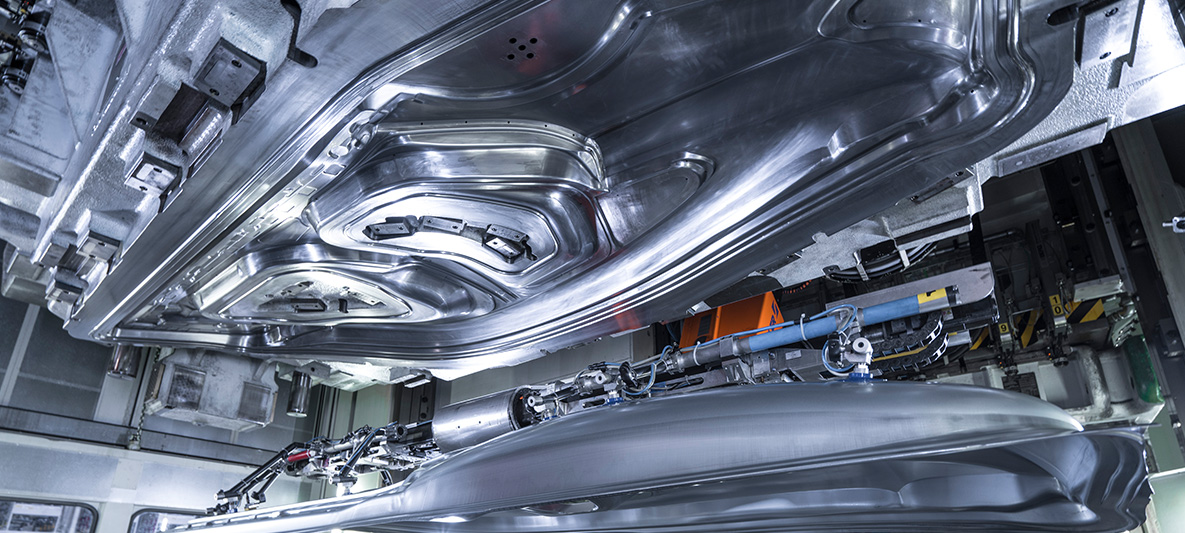
BEFORE THE USE PHASE.
SUPPLY CHAIN AND SUPPLIER MANAGEMENT.
Today
For the BMW Group, sustainability begins within the supplier network. This is why we have restructured our supply chains – transparently and in accordance with high standards:
- continuous supplier development along with consistent supplier and subsupplier management
- clear regulations and measures for the protection of human rights, which include ensuring a complete ban on child labour, which also applies to our suppliers
- reliable risk management is indispensable, particularly for critical materials. They include very strict demands from our suppliers. This also includes special projects in the supply chain for critical ressources
- continuous supplier development along with consistent supplier and subsupplier management
2030
Our focus is on achieving a reduction of 40% in CO2 per vehicle over the entire value-added chain by 2030. The supply chain accounts for 20% of this CO2 reduction.
PRODUCTION.
Today
We do not use any rare earths in the electric drive of our 5th generation e-motors. In manufacturing the batteries for our electrified vehicles we use green electricity – as do our suppliers for the battery cells. Furthermore, our batteries can be recycled to a level of more than 90%. As a benchmark in matters of sustainability, we have specified additional production standards:
- in collaboration with our suppliers, we are aiming to convert our steel production step by step so that it is practically CO2-free.
In collaboration with our suppliers, we are aiming to convert our steel production step by step so that it is practically CO2-free. In the coming years, the agreements with Salzgitter AG and H2 Green Steel will cover more than 40% of the steel demand in the European plants of the BMW Group - since 2020, we have been obtaining all our electricity purchased externally from renewable energy sources
- since 2021, all of our locations have been completely CO2-neutral due to offsetting measures
- our paints use a water-based production process. In addition, the BMW Group uses matt paints derived 100% from organic waste in its plants in Europe and South Africa
- as from 2025 (New Class):
at the forefront of production for the New Class is a process with CO2 reduced through the use of green electricity and secondary materials. Battery cells are produced with cobalt, lithium and nickel, which contains a proportion of secondary materials. Furthermore, the manufacturers commit to producing only with electricity from renewable energies. In this way, the BMW Group is able to reduce the CO2 footprint in battery cell production by up to 60% compared with the current generation of battery cells - the raw materials cobalt and lithium used in the new battery cell generation originate from certified mines. This provides us with transparency for the extraction methods and assures that the mining is conducted responsibly
- in collaboration with our suppliers, we are aiming to convert our steel production step by step so that it is practically CO2-free.
2030
Our main focus is on achieving a 40% reduction in CO2 per vehicle over the entire value process by 2030. The CO2 reduction target for the BMW Group’s own production by 2030 amounts to 80%. In doing this, we take regional aspects into account when analysing measures
- we are continuously optimising our energy efficiency
- we are forging ahead with the use of renewable energy sources at our locations
DURING THE USE PHASE.
REDUCTION OF EMISSIONS.
Today
As a means of continuously improving sustainability, the BMW has reduced the actual emissions of vehicles in operation, which has resulted in CO2 emissions more than halving since 1995. We have been able to achieve this with the aid of highly efficient combustion engines with low emission values due to EfficientDynamics measures. Moreover, we have extended our electromobility range: added to this is the promotion of efficient driving and the expansion of the charging infrastructures, for example with several hundred thousand charging points from our partners (DCS GmbH, Ionity, etc.).
2030
By 2030, the BMW Group aims to reduce CO2 emissions per vehicle during use by up to 50% compared with 2019.
- At least half of the vehicles sold are intended to be fully electric
LONG SERVICE LIFE DUE TO CONDITION-BASED SERVICE.
Today
In the field of Aftersales, too, the BMW Group is offering new sustainability solutions, such as in the field of Condition-Based Services (CBS). The BMW Group was the first OEM to offer a Condition-Based Service (CBS) that allows for exact surveillance of certain wearing components. The vehicle recognises when a service is required and how the individual parts can be used to best effect up until their limit of wear. This has benefits for customers in terms of the price offered as well as for the environment.
INCREASE IN ELECTRIC DRIVING PROPORTION OF PHEVS.
Today
Using the Tool Fleet Data, fleet managers have the opportunity to employ new sustainability functions as from 2023:
- Evaluation of and transparency for the CO2 figures from the fleet
- Evaluation of the electric and emission-reduced driving proportions of Plug-In-Hybrid cars
- Potential analysis and recommendation for fleet electrification
We will be glad to advise you on this matter: tendermanagement@bmwgroup.com
AFTER THE USE PHASE.
RECYCLING OPTIONS AT THE END OF THE LIFE CYCLE.
Today
In 2023, the average proportion of secondary raw materials (recycled material and material such as production scrap, etc.) in a BMW is already approximately 30%.
- We use a novel procedure to recover more than 90% or materials from high-voltage batteries
- Back in 2021, the BMW Group presented its vision of a circular economy in a real vehicle, the BMW i Vision Circular. This visionary vehicle displays the ambition of the BMW Group and is made 100% of recycled materials while also being similarly 100% suitable for recycling. In the medium term, the BMW Group has the target of using a proportion of 50% secondary raw materials in the vehicles of its fleet, wherever appropriate vehicles are available on the market
PRODUCT PORTFOLIO.
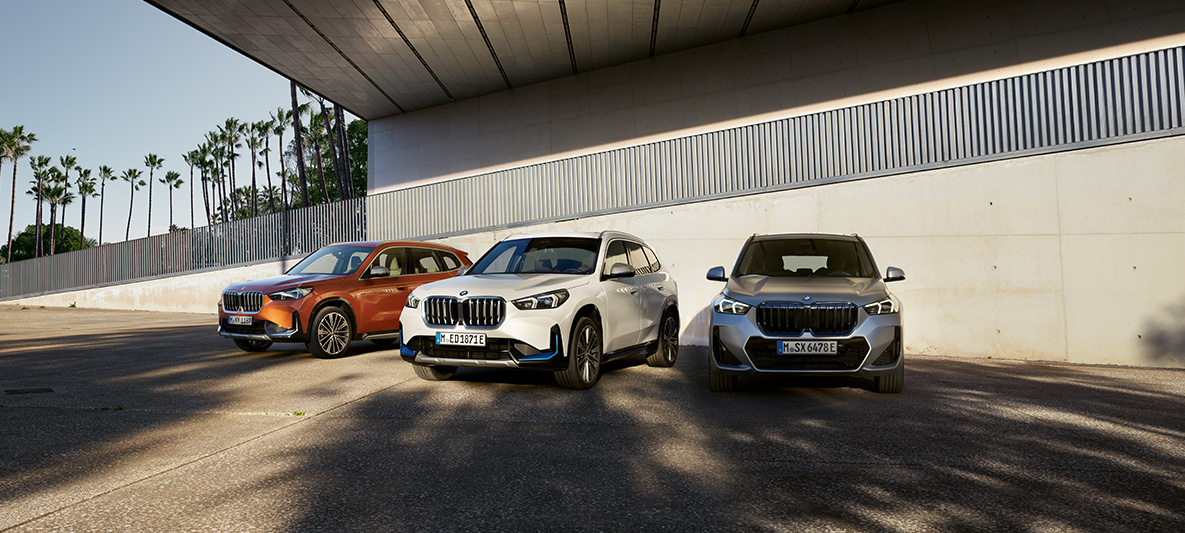
ELECTROMOBILITY.
Electromobility is a central pillar within the sustainability strategy, which the BMW Group is set to continuously expand during the coming years.
- 2022: doubling of the sales of electrified vehicles compared with 2021
- 2023: 25 electrified vehicle models on the market, 13 fully electric
- By 2025: electrified vehicles to account for more than 30% of all deliveries
- By 2030: more than 50% of worldwide deliveries to be fully electric
Powerful and sustainable energy storage systems and the development of new innovative battery cells are key elements for future fully electric vehicle generations. The BMW Group is working to significantly raise the energy density of the cells while at the same lowering the costs for materials used and production. The recyclability of the battery is an important aspect that provides input for the development of future battery cell generations. Furthermore, the BMW Group is already conducting intensive research into solid-state battery technology, which already looks very promising.
NEW CLASS 2025.
The New Class is the product range of the BMW Group dedicated exclusively to fully electric propulsion. It is being developed on our New Cluster Architecture (NCAR) with its three future-oriented core elements of “electrical”, “digital” and “circular”.
The New Class marks the entry of the BMW Group sustainability concept into the third phase. In this phase we are raising the pace of CO2 reduction and concentrating firmly on the circular economy. It is characterised by three key aspects: a completely redefined IT and software architecture, a newly developed electric drive and battery generation and a new level of sustainability extending over the entire life cycle.
- Electric first. Uncompromisingly designed and optimised for electric drivetrains – we call it BEV-only. Aim to match range and contribution margin of state-of-the-art combustion engines
- Secondary first. Proportion of secondary materials will be sharply increased. Focus on greatly reducing resource consumption
- Digital first. Completely novel user experience. Even more individually configurable and bookable features
- Production without fossil energy sources in the new BMW iFactory, Hungary
CHARGING INFRASTRUCTURE AND CHARGING.
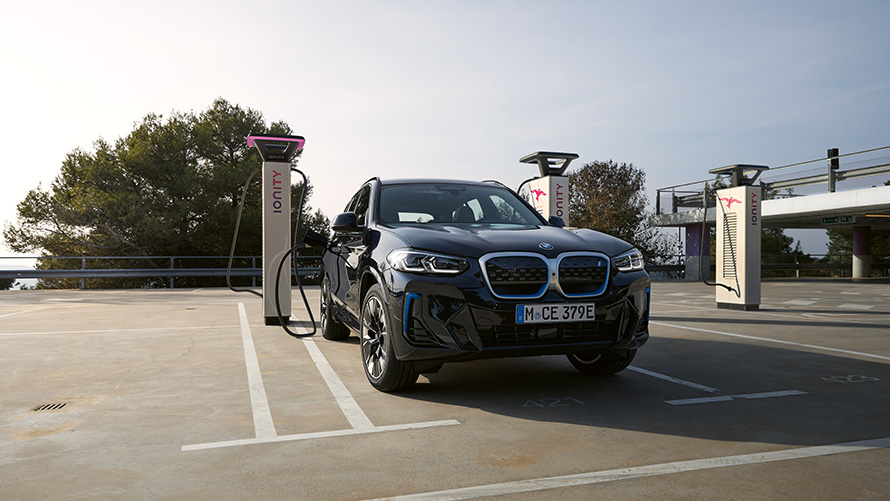
Through BMW and MINI Charging, the BMW Group is offering comprehensive charging solutions that enable the electrified vehicle to be used conveniently in different situations. The portfolio contains charging products and services for use on the move, at home or at the workplace.
BMW Charging supports environmentally friendly forms of energy generation and uses proof of origin documentation to guarantee that the energy in the network comes from regenerative fuel systems. The BMW/ MINI Charging Card offers easy access to the charging networks in Europe.
MAXIMUM DEMANDS ON US AND OUR SUPPLIERS AROUND THE WORLD.
LABOUR STANDARDS AND HUMAN RIGHTS.
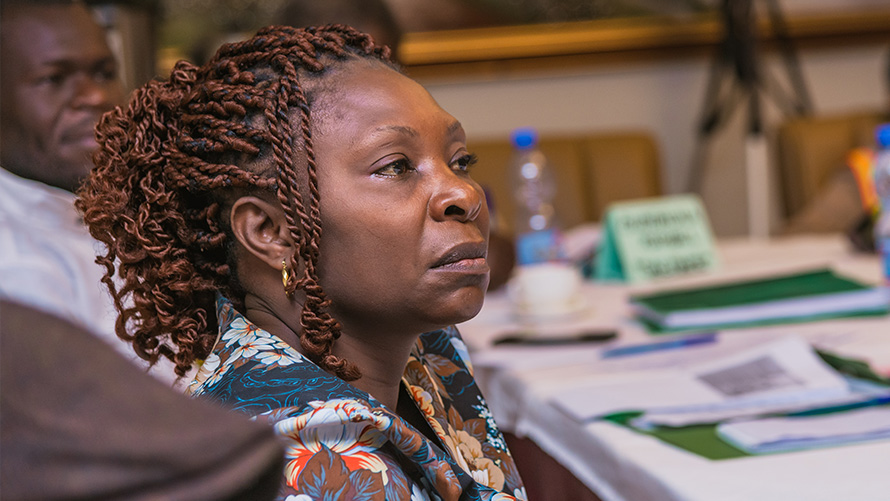
Internationally recognised guidelines for environmental and social criteria are a benchmark for the BMW Group within the entire value-added chain. This particularly affects
- The Guidelines for Multinational Enterprises of the Organisation for Economic Co-operation and Development (OECD)
- The United Nations Guiding principles on Business and Human Rights
- The Ten Principles of the UN Global Compact
- The contents of the ICC Business Charter for Sustainable Development
- The Cleaner Production Declaration of the United Nations Environment Programme (UNEP)
ENVIRONMENTAL STANDARDS AND SUSTAINABLE PRODUCTION OF RAW MATERIALS.
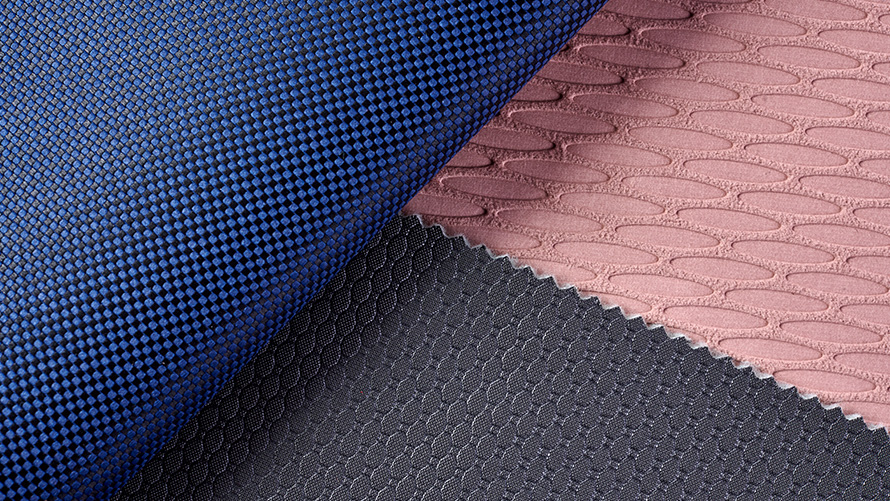
We source components, materials and other services from more than 32,000 production and distribution locations. Responsibility for the associated social and ecological due diligence obligations lies with our suppliers as part of our contractually binding sustainability standards. At the same time, we are working on solutions that permit a reduction in or substitution of raw materials in our vehicles. We analyse raw materials continuously with respect to infringements of environmental and social standards.
DUE DILIGENCE.
OUR IMPLEMENTATION OF CORPORATE DUE DILIGENCE WITHIN THE SUPPLIER NETWORK.
Due diligence obligations in the supply chain
For eight years, the BMW Group has been paying due respect to corporate due diligence within the supplier network. Back in 2008, we defined comprehensive preventive measures, such as contractual obligations to adhere to environmental and social standards and for the first time laid these down as specifications when commissioning suppliers for the BMW i3. In 2014, these standards were extended with the addition of a multi-stage due diligence process, which encompasses the procurement of production material for all vehicle models as well as non-production-related goods and services. Examples of the contents include the contractual obligation for extended environmental and social standards, human rights as well as management systems for occupational safety and environmental protection. All suppliers with direct business relationship with the BMW Group must pass on these requirements to their respective subsuppliers in the form of a contract.
We believe in respect of the internationally recognised human rights and are guided, among others, by the following principles and regulations
- the United Nations Guiding principles on Business and Human Rights
- Principles of the UN Global Compact
- Principles of the International Labour Organisation
- OECD Due Diligence Guidance for Responsible Business Conduct
- the National Action Plan of the German Federal Government and the
- the Act on Corporate Due Diligence Obligations in Supply Chains of the Federal Republic of Germany derived therefrom
Sustainable sourcing of raw materials
We purchase all critical raw materials such as lithium and cobalt – key raw materials for the production of battery cells – for the current fifth generation directly from raw material suppliers and make them available to the producers of our current generation of battery cells. This enables us to achieve traceability (mass balance) for the origin as well as transparency in terms of the extraction methods.
- Alignment of the corporate due diligence with the OECD Due Diligence Guidance for Responsible Supply Chains of Minerals from Conflict-Affected and High-Risk Areas
- Sustainability standards through security of supply, price stability and secure working conditions
- Foundation of the industry-wide initiative “Cobalt for Development”
Risk analysis and avoidance
The basic prerequisite for the award of any contract is adherence to our specified sustainability requirements. For this reason, the BMW Group constantly assesses sustainability risks and consequences within its supplier network in order to fulfil its due diligence obligations as they affect ecological aspects and human rights.
The BMW GROUP Due Diligence Programme encompasses:
- Continuous risk analysis by BMW Group specific risk filter, which is supplemented by standardised risk maps from the Responsible Business Alliance (RBA)
- Dynamic assessment methodology to achieve a high-grade, country-specific risk analysis for every evaluated supplier location
- Use of various data sources such as the UNICEF index for child labour
- Combination of this risk assessment with a consideration of specific groups of raw materials
- We demand that suppliers with more than 100 employees provide externally audited and certified environmental management systems

